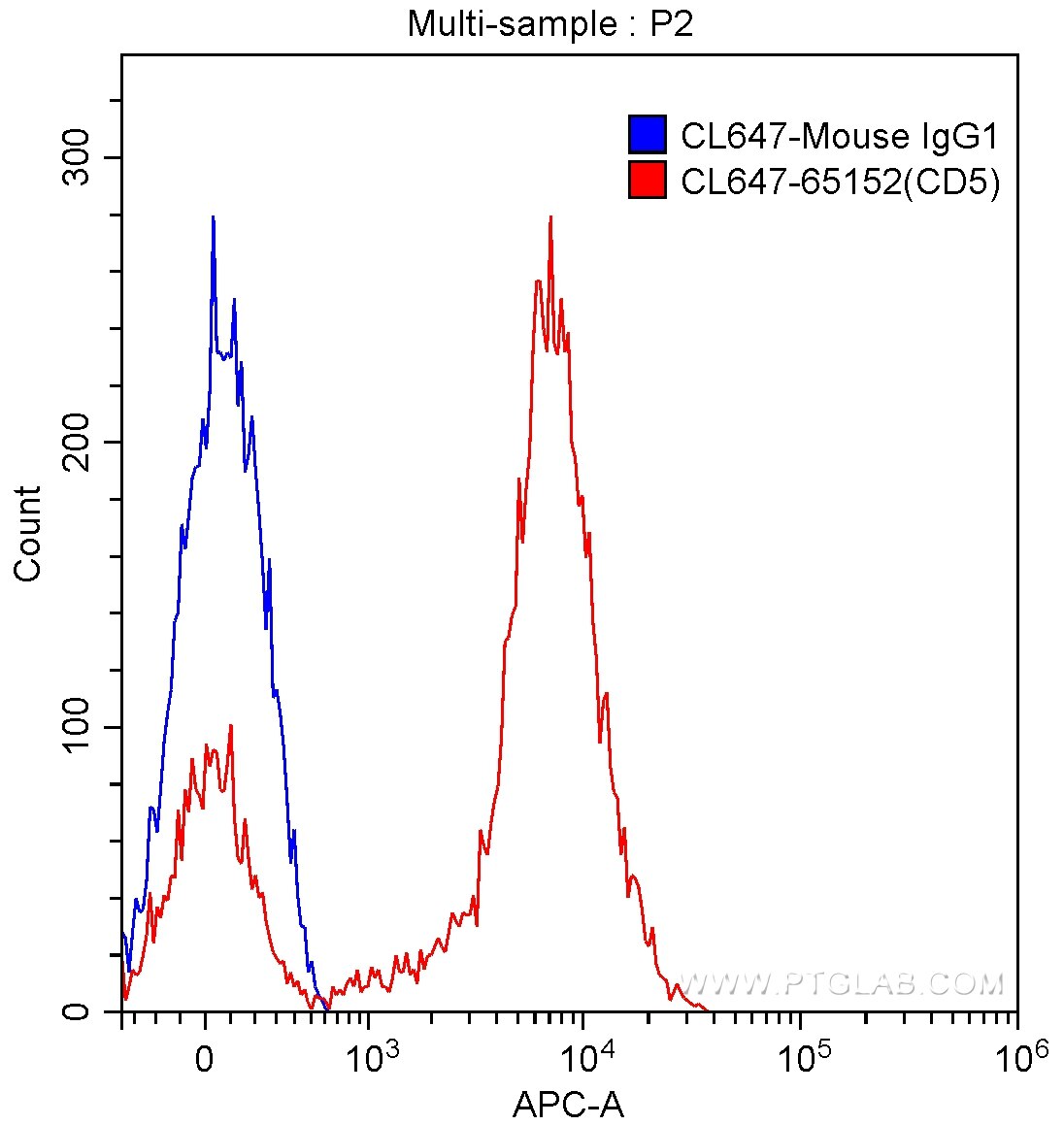CD5 Monoklonaler Antikörper
CD5 Monoklonal Antikörper für FC
Wirt / Isotyp
Maus / IgG1, kappa
Getestete Reaktivität
human
Anwendung
FC
Konjugation
CoraLite® Plus 647 Fluorescent Dye
CloneNo.
UCHT2
Kat-Nr. : CL647-65152
Synonyme
Galerie der Validierungsdaten
Geprüfte Anwendungen
| Erfolgreiche Detektion in FC | humane Lymphozyten aus peripherem Blut |
Empfohlene Verdünnung
| Anwendung | Verdünnung |
|---|---|
| This reagent has been pre-titrated and tested for flow cytometric analysis. The suggested use of this reagent is 5 µl per 10^6 cells in a 100 µl suspension or 5 µl per 100 µl of whole blood. | |
| Sample-dependent, check data in validation data gallery | |
Produktinformation
CL647-65152 bindet in FC CD5 und zeigt Reaktivität mit human
| Getestete Reaktivität | human |
| Wirt / Isotyp | Maus / IgG1, kappa |
| Klonalität | Monoklonal |
| Typ | Antikörper |
| Immunogen | k.A. |
| Vollständiger Name | CD5 molecule |
| Berechnetes Molekulargewicht | 495 aa, 55 kDa |
| GenBank-Zugangsnummer | BC027901 |
| Gene symbol | CD5 |
| Gene ID (NCBI) | 921 |
| Konjugation | CoraLite® Plus 647 Fluorescent Dye |
| Excitation/Emission maxima wavelengths | 654 nm / 674 nm |
| Form | Liquid |
| Reinigungsmethode | Affinitätsreinigung |
| Lagerungspuffer | PBS mit 0,1% Natriumazid und 0,5% BSA, pH 7,3. |
| Lagerungsbedingungen | Store at 2-8°C. Avoid exposure to light. Stable for one year after shipment. 20ul Größen enthalten 0,1% BSA. |
Hintergrundinformationen
CD5 is a type I transmembrane glycoprotein of the scavenger receptor cysteine-rich family (PMID: 12403363). CD5 is expressed on a majority of thymocytes, mature T cells, B cell subsets, and peripheral blood dendritic cells (PMID: 9858516; 6156984; 10379049; 1384337). CD5 may act as a receptor in regulating T-cell proliferation. It functions as a negative regulator of TCR signaling during thymocyte development (PMID: 7542801).
Protokolle
| Produktspezifische Protokolle | |
|---|---|
| FC protocol for CL Plus 647 CD5 antibody CL647-65152 | Protokoll herunterladen |
| Standard-Protokolle | |
|---|---|
| Klicken Sie hier, um unsere Standardprotokolle anzuzeigen |


